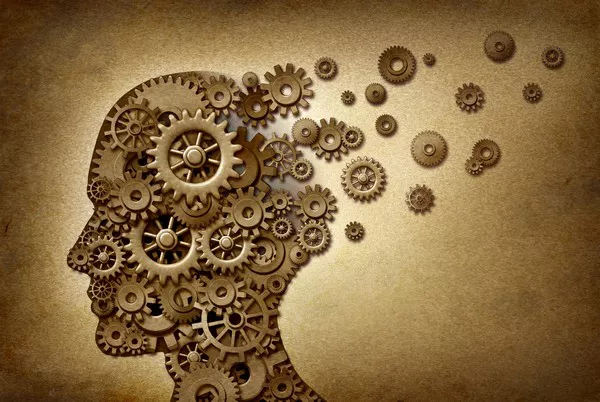In the realm of mental health treatment, various therapeutic approaches have emerged to cater to the diverse needs of individuals struggling with emotional and psychological challenges. One such approach that has gained considerable recognition is Dialectical Behavior Therapy, commonly referred to as DBT. If you’re seeking insights into this therapeutic method, you’re in the right place. In this article, we’ll delve into the nuances of DBT, its core principles, techniques, applications, benefits, and its significance in the field of mental health.
Understanding DBT: Unraveling the Basics
Dialectical Behavior Therapy, or DBT, is a specialized form of cognitive-behavioral therapy that was initially developed by psychologist Marsha M. Linehan in the late 1980s. Its primary focus lies in providing effective strategies for individuals dealing with emotional dysregulation, self-destructive behavior, and difficulties in interpersonal relationships. DBT integrates various principles and techniques from cognitive-behavioral therapy, mindfulness, and dialectics to create a comprehensive and holistic approach to treatment.
Core Principles of DBT: Finding the Balance
DBT operates on four fundamental principles, each serving as a pillar to guide both therapists and clients through the therapeutic journey:
a) Mindfulness: This principle encourages individuals to cultivate awareness of the present moment without judgment. Mindfulness practices, such as meditation and deep breathing, help clients become attuned to their emotions and thoughts.
b) Interpersonal Effectiveness: DBT equips individuals with skills to navigate and enhance interpersonal relationships. Effective communication, setting boundaries, and managing conflicts are integral aspects of this principle.
c) Emotion Regulation: Managing intense emotions is a common struggle for many. DBT teaches strategies to identify, understand, and regulate emotions in healthy ways, preventing impulsive reactions.
d) Distress Tolerance: Life presents challenges, and developing the ability to tolerate distressing situations without resorting to destructive behaviors is crucial. DBT teaches techniques to cope with distress while maintaining emotional equilibrium.
Techniques Employed in DBT: Tools for Transformation
DBT employs a range of techniques to address the diverse needs of clients:
a) Dialectical Thinking: Clients learn to find the middle ground between seemingly contradictory thoughts. This helps in reducing black-and-white thinking and promotes balanced perspectives.
b) Diary Cards: These are used to track emotions, behaviors, and the use of newly acquired skills. Diary cards provide a visual representation of progress and areas that need attention.
c) Chain Analysis: In cases of unwanted behaviors or reactions, chain analysis helps individuals trace back the series of events, thoughts, and emotions that led to the behavior. This aids in understanding triggers and developing strategies to prevent recurrence.
d) Validation: Validation is a cornerstone of DBT. Therapists validate clients’ emotions and experiences, fostering a sense of understanding and trust in the therapeutic relationship.
Applications of DBT: Beyond the Individual
While DBT was initially designed for individuals with borderline personality disorder, its effectiveness has led to its application in various contexts:
a) Substance Abuse Treatment: DBT has been adapted to aid individuals in overcoming substance abuse by addressing emotional triggers and enhancing coping mechanisms.
b) Eating Disorders: Individuals struggling with disorders like binge eating and bulimia benefit from DBT’s focus on emotion regulation and distress tolerance.
c) PTSD and Trauma: Trauma survivors often grapple with emotional dysregulation. DBT techniques offer valuable tools to manage traumatic triggers and build resilience.
Benefits and Future Directions: Shaping Mental Health
The benefits of DBT are numerous and far-reaching. Clients who engage in DBT often experience improved emotional regulation, enhanced relationships, reduced self-destructive behaviors, and an overall higher quality of life. Moreover, the success of DBT has paved the way for its integration into teletherapy platforms and digital mental health resources, making it accessible to a wider audience.
Conclusion
In conclusion, Dialectical Behavior Therapy (DBT) stands as a transformative approach to mental health treatment. By amalgamating mindfulness, cognitive-behavioral techniques, and the power of dialectical thinking, DBT equips individuals with the tools they need to navigate emotional challenges, improve relationships, and foster personal growth. As the field of mental health continues to evolve, DBT remains a beacon of hope for those seeking a path to emotional well-being.
Incorporating DBT techniques into one’s life can lead to profound positive changes. If you or someone you know is struggling with emotional dysregulation, self-destructive behavior, or difficulties in relationships, considering DBT could be a step toward a brighter and more balanced future. Remember, seeking the guidance of a qualified mental health professional is crucial when embarking on this transformative journey.


